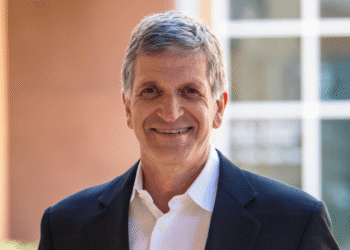At the ECPS International Conference 2025, Roundtable 3 explored how broken social contracts have fueled populism and democratic disillusionment. Held at St Cross College, University of Oxford, the panel featured Selçuk Gültaşlı’s summary of Eric Beinhocker’s fairness-based model of democratic collapse, Dr. Aviezer Tucker’s critique of elite entrenchment, Lord Alderdice’s focus on emotional wounds like humiliation and disillusionment, and Professor Julian F. Müller’s call for conceptual clarity around populism. Concluding the session, Irina von Wiese grounded abstract theory in lived inequality and called for renewed trust, dignity, and participation. The panel made clear: rebuilding democracy requires more than policy—it demands empathy, fairness, and respect for those left behind.
Reported by ECPS Staff
Held on the final day of the ECPS International Conference 2025, the third roundtable—“When the Social Contract is Broken: How to Put the Genie Back”—offered a rich culmination to three days of interdisciplinary reflection under the theme: “We, the People” and the Future of Democracy.” Taking place at the historic St Cross College, University of Oxford on July 3, 2025, the roundtable brought together scholars and practitioners to diagnose the breakdown of democratic legitimacy and consider pathways for renewal.
As co-chair of the roundtable, Selçuk Gültaşlı, Chairperson of the ECPS Executive Board, offered a conceptual framework drawn from Professor Eric Beinhocker’s work on the moral foundations of democratic cooperation. Though Beinhocker could not attend, Gültaşlı summarized his argument: that liberal democracies have violated key fairness dimensions—agency, inclusion, opportunity, and reciprocity—since the 1970s, generating widespread moral outrage and legitimizing the populist backlash.
The roundtable’s academic debate opened with Dr. Aviezer Tucker (University of Ostrava), who challenged the assumption that social contract theory is globally applicable. Instead, he traced the rise of populism to elite self-preservation, blocked mobility, and institutional failures, and proposed bold reforms in education, housing, and digital media regulation.
Lord John Alderdice, drawing on his leadership in the Northern Ireland peace process, emphasized the emotional roots of democratic crisis: humiliation, perceived injustice, and disillusionment with democratic outcomes. “People forget arguments,” he said, “but they don’t forget how you made them feel.”
Professor Julian F. Müller (University of Graz) closed the panel with a philosophical plea for conceptual precision. Warning against the moral and political costs of conflating populism with conservatism or racism, he argued that mislabeling people with real grievances risks reinforcing the very alienation populists exploit.
In her concluding reflections, Irina von Wiese, Honorary President of ECPS, drew on both personal memory and political experience to emphasize the human stakes of a fractured social contract. Recalling her upbringing in postwar Germany and her current role as a councillor in Southwark—one of London’s most starkly unequal boroughs—she illustrated the lived realities of inequality where extreme wealth and deep deprivation exist side by side. Echoing Eric Beinhocker’s core arguments, von Wiese noted that the mix of anger and resignation she encounters daily requires no academic training to interpret. For her, the path to renewal lies in restoring public trust by upholding dignity, enabling agency, and demonstrating that democracy can still deliver for all.
Together, these contributions reflected von Wiese’s closing message: that “populists are not the disillusioned masses but the exploiters,” and that rebuilding democracy begins with respect, representation, and honest engagement.


